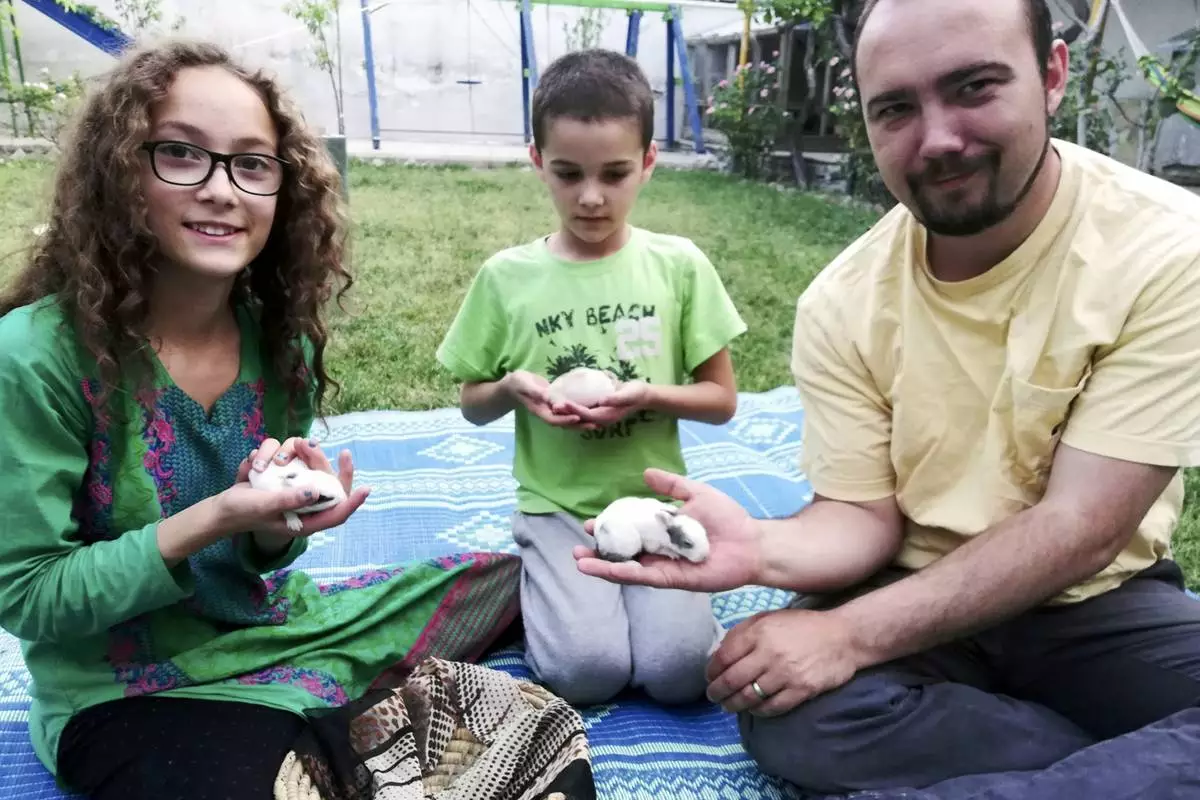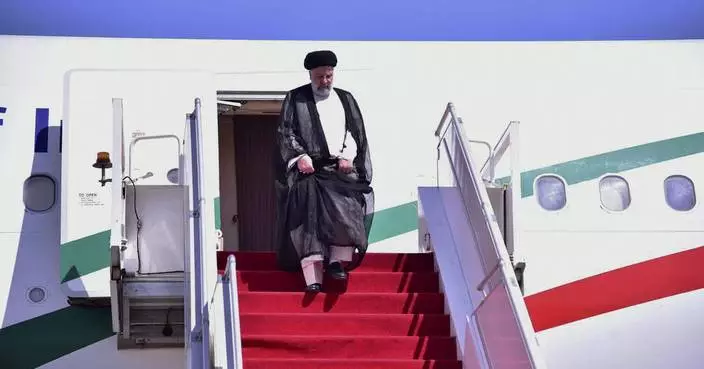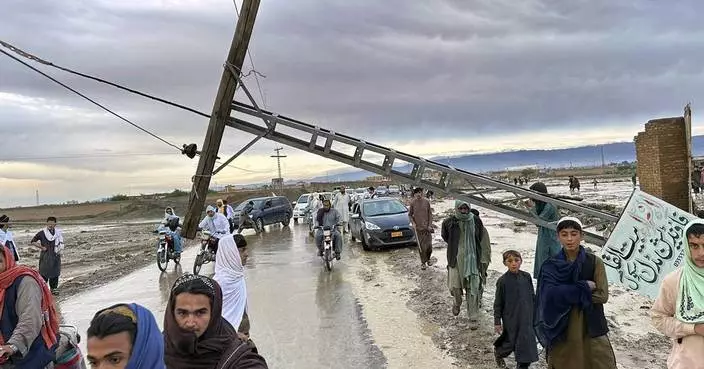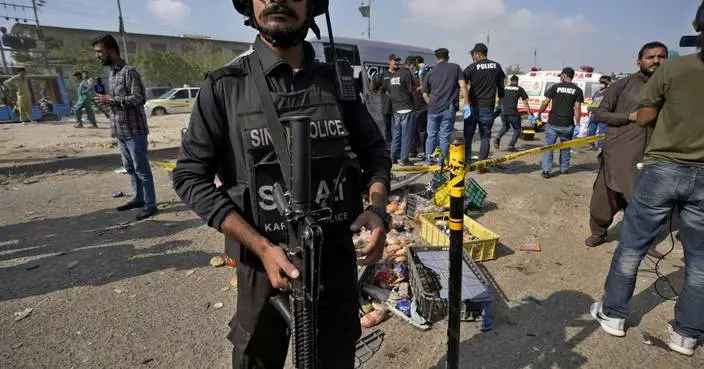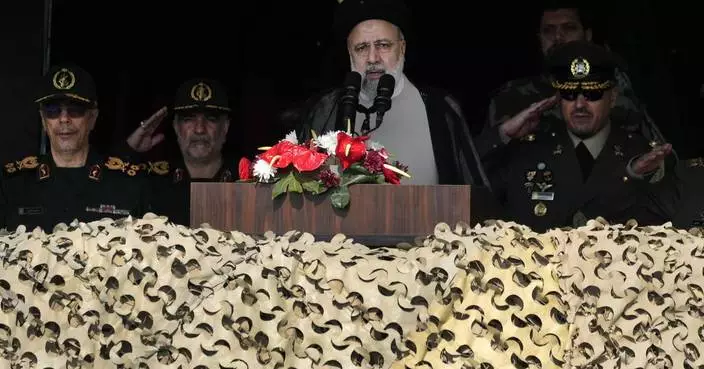A U.S. drone strike in northeastern Kunar province killed Pakistan Taliban chief Mullah Fazlullah, the insurgent leader who ordered the assassination of Nobel Peace Prize winner Malala Yousafzai, an Afghan Defense Ministry spokesman said Friday.
In a telephone interview, Mohammad Radmanish said Fazlullah and two other insurgents were killed early Thursday morning, just hours before Afghanistan's Taliban began a three-day cease fire to mark the Muslim holiday of Eid al-Fitr. The three-day holiday follows the end of Islam's holy month of Ramadan when devout adherents fast from sunrise to sunset.
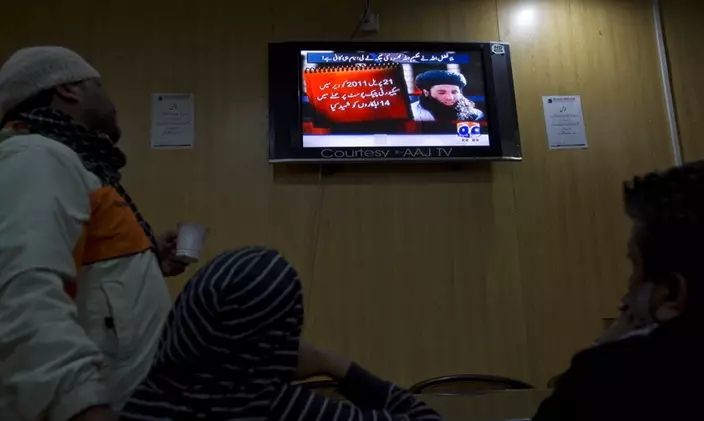
FILE - In this Nov. 7, 2013 file photo, people watch a news report on TV about newly selected leader of Pakistani Taliban leader Mullah Fazlullah at a coffee shop in Islamabad, Pakistan. An Afghan defense ministry official says Friday, June 15, 2018 a US drone strike in northeastern Kunar province killed Pakistan Taliban chief Mullah Fazlullah. Pakistan has been hunting Fazlullah for several years and has repeatedly said he was plotting attacks on Pakistan from safe havens in Afghanistan. The Arabic on the TV news report reads, "On April 21, 2011, fourteen troops were killed in an attack on a checkpoint in Dir." (AP Photo/B.K. Bangash, File)
However, Sakhi Mashwani, a Parliamentarian from Kunar province told the Associated Press that Fazlullah, along with five other insurgents, died when the strike slammed into the vehicle in which they were driving.
Mashwani said dozens of people, including Fazlullah's brother, Moheen Dada, gathered Friday in the Ghaziabad district of Kunar province, to offer prayers for the dead Taliban leader.
A U.S. official said the U.S. believes that it is likely the strike killed Fazlullah, but efforts are ongoing to confirm his death. The official spoke on condition of anonymity to discuss preliminary information.
According to a statement attributed to U.S. Forces-Afghanistan spokesman Lt. Col Martin O'Donnell, the U.S. carried out a "counterterrorism strike" Thursday in the border region between Afghanistan and Pakistan targeting "a senior leader of a designated terrorist organization."
The statement did not say whether the strike had killed anyone and did not identify Fazlullah as the target. However, the statement did note that the drone attack did not violate a cease-fire announcement made June 7 by Afghan President Ashraf Ghani. The Taliban's promise of a temporary truce came on Monday.
Radmanish said the drone attack took place in Marawara district, near the border.
Pakistan's military refused to comment on the report of Fazlullah's death saying any information would have to come from Washington. Yet Fazlullah's death would be welcome news in Pakistan, where the government has repeatedly complained that Fazlullah and his Tehrik-e-Taliban had found safe havens across the border in Afghanistan. Meanwhile, Kabul and Washington both complain that Pakistan has for years allowed Afghanistan's Taliban free movement as well as medical treatment for battlefield wounds.
Still, the recent cease-fire announcement by Afghanistan's Taliban is being at least partially credited to Pakistan, which some observers say has been pressing the leadership to accept President Ghani's recent peace overtures.
In his Eid greeting this week, Afghan Taliban chief Haibatullah Akhunzada repeated the Taliban demand for direct talks with the United States before opening negotiations with the Afghan government. Until now, Washington has refused.
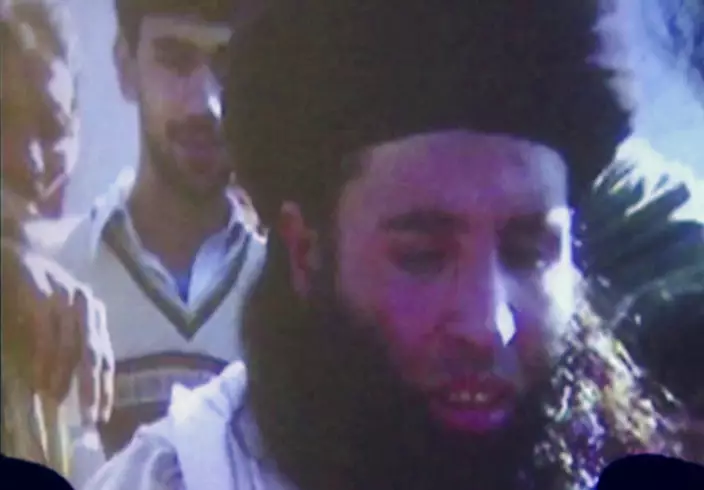
FILE - In this file image made from video broadcast on Thursday, Nov. 7, 2013, undated footage of Mullah Fazlullah is shown on a projector in Pakistan. An Afghan defense ministry official says Friday, June 15, 2018 a US drone strike in northeastern Kunar province killed Pakistan Taliban chief Mullah Fazlullah. Pakistan has been hunting Fazlullah for several years and has repeatedly said he was plotting attacks on Pakistan from safe havens in Afghanistan. (AP Photo via AP Video, File)
It was Yousafzai's open call for girls' education and criticism of the Taliban that infuriated Fazlullah. She was just 14 when she survived the assassination attempt in 2012. Her return to her hometown earlier this year seemed a particular triumph as it was also to open a school funded by a charity she established to promote girls education globally.
She has often said that Fazlullah's attempts to silence her backfired and instead he amplified her voice around the world.
A ruthless leader, Fazlullah ordered the bombing and beheadings of dozens of opponents when his band of insurgents controlled Pakistan's picturesque Swat Valley from 2007 until a massive military operation routed them in 2009.
In Yousafzai's hometown of Mingora in the Swat Valley, residents welcomed reports of Fazlullah's death with one resident saying many feared he would return one day to re-impose his violent rule.
"We witnessed the brutality of the Taliban in Swat when Fazlullah and his men were present here and we are happy to know that he has gone to hell," said Idrees Khan, a member of a local elders peace committee. "People in Swat will feel safer after the killing of Fazlullah."
His insurgent group, the Tehrik-e-Taliban, also took responsibility for the brutal attack on an Army Public School in Pakistan's northwestern city of Peshawar in December 2014 when more than 140 children and their teachers were slaughtered.
Survivors of the attack told of insurgents roaming through the school shooting their victims, some as young as six years old, in the head.
Mohammad Akhtar, whose 12-year-old son Fahad Khan died in the 2014 massacre, said he had been waiting for confirmation of "terrorist Fazlullah's" death.
"Thank God, he is dead," he said after returning from a visit to his son's grave.
Fazlullah rose to prominence through radio broadcasts in Swat demanding the imposition of Islamic law, earning him the nickname "Mullah Radio." His radio talks also aired the grievances of many in the northwest against the government, such as its slow-moving justice system. He also reached out to women, promising to address their complaints about not getting a fair share of their inheritance.
His brutality often included public beheadings, often of police officers. His exact age is not known but he was believed to be in his late 30s.



